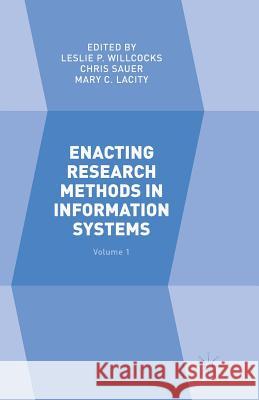Enacting Research Methods in Information Systems: Volume 1 » książka
topmenu
Enacting Research Methods in Information Systems: Volume 1
ISBN-13: 9783319805252 / Angielski / Miękka / 2018 / 298 str.
Kategorie:
Kategorie BISAC:
Wydawca:
Palgrave MacMillan
Język:
Angielski
ISBN-13:
9783319805252
Rok wydania:
2018
Wydanie:
Softcover Repri
Ilość stron:
298
Waga:
0.36 kg
Wymiary:
21.59 x 13.97 x 1.65
Oprawa:
Miękka
Wolumenów:
01
Dodatkowe informacje:
Wydanie ilustrowane











